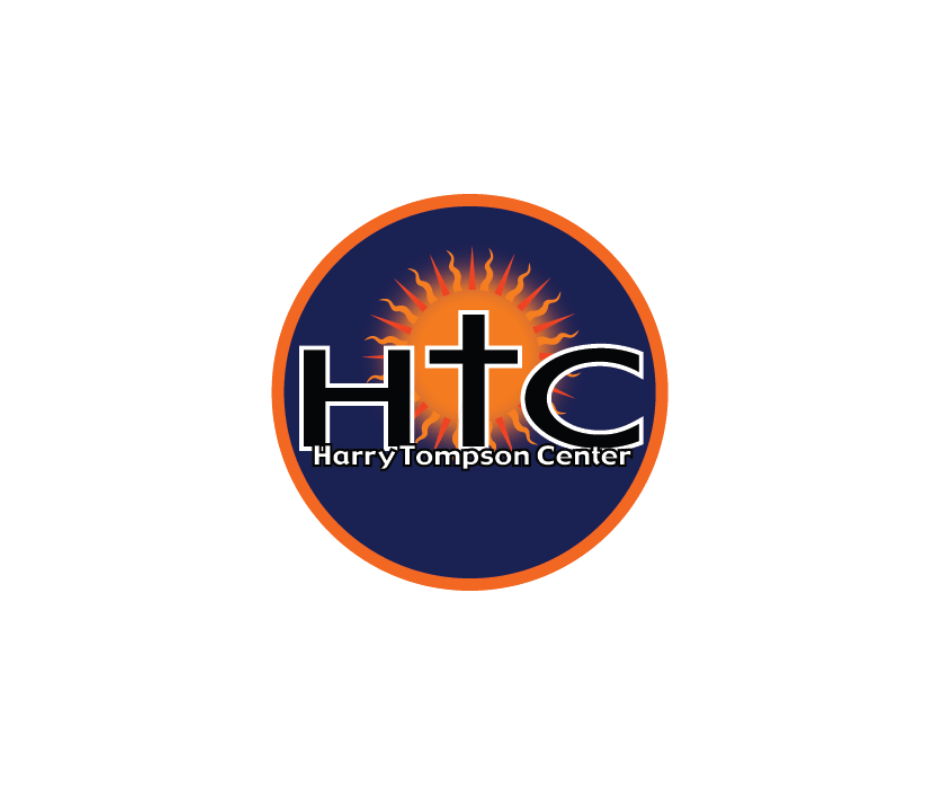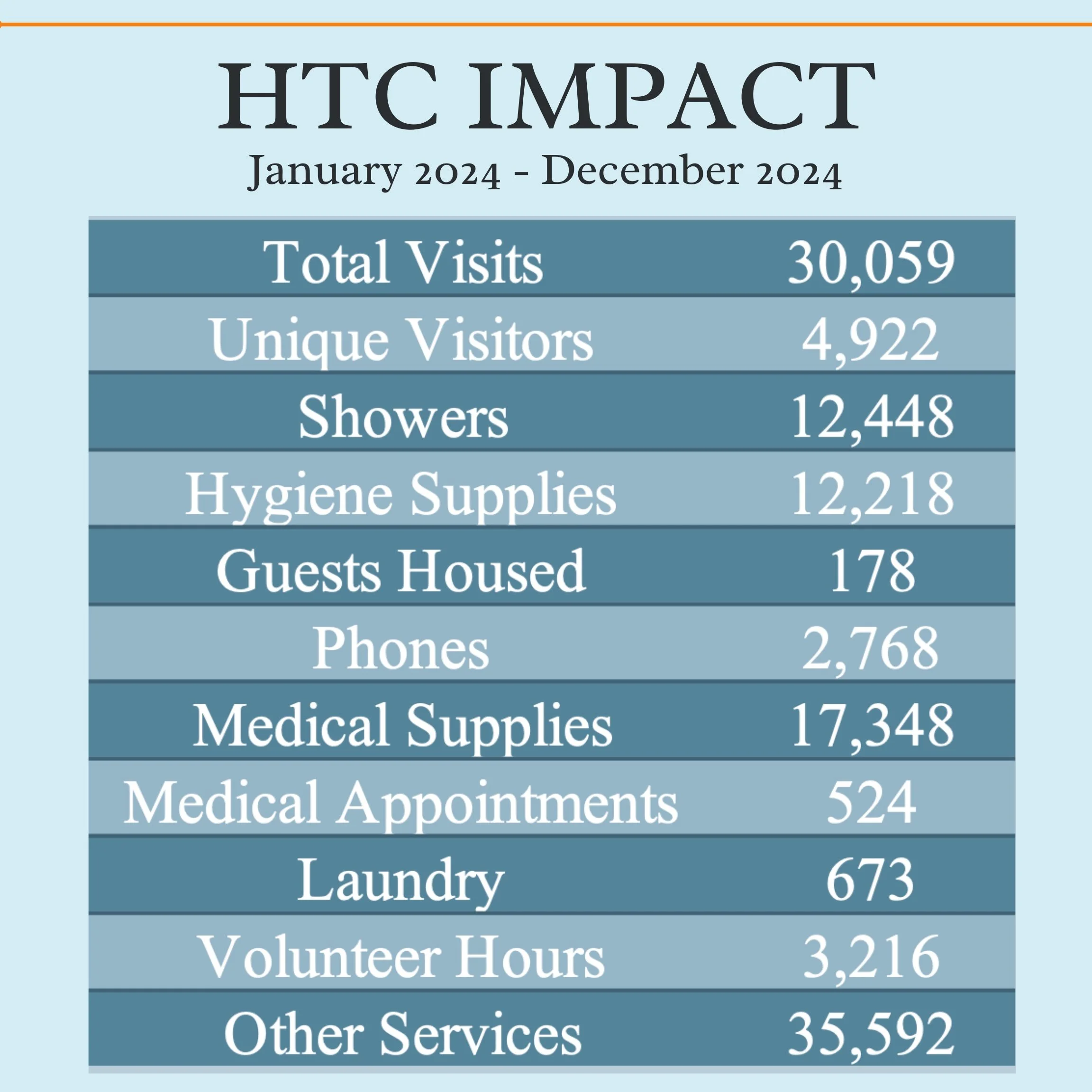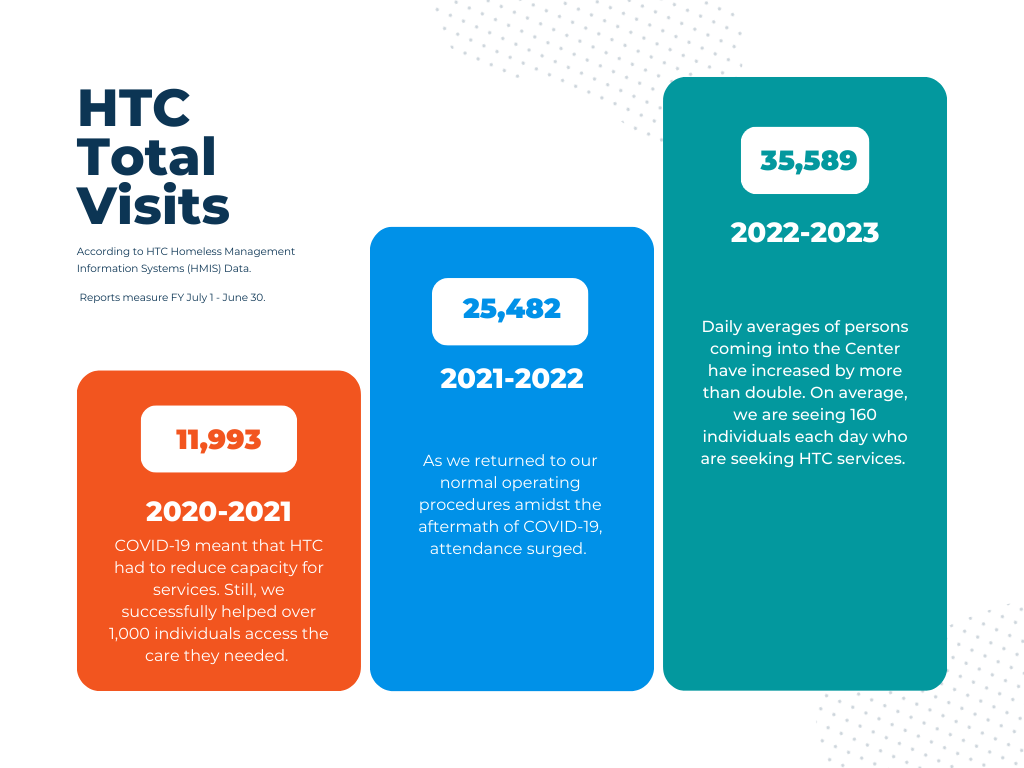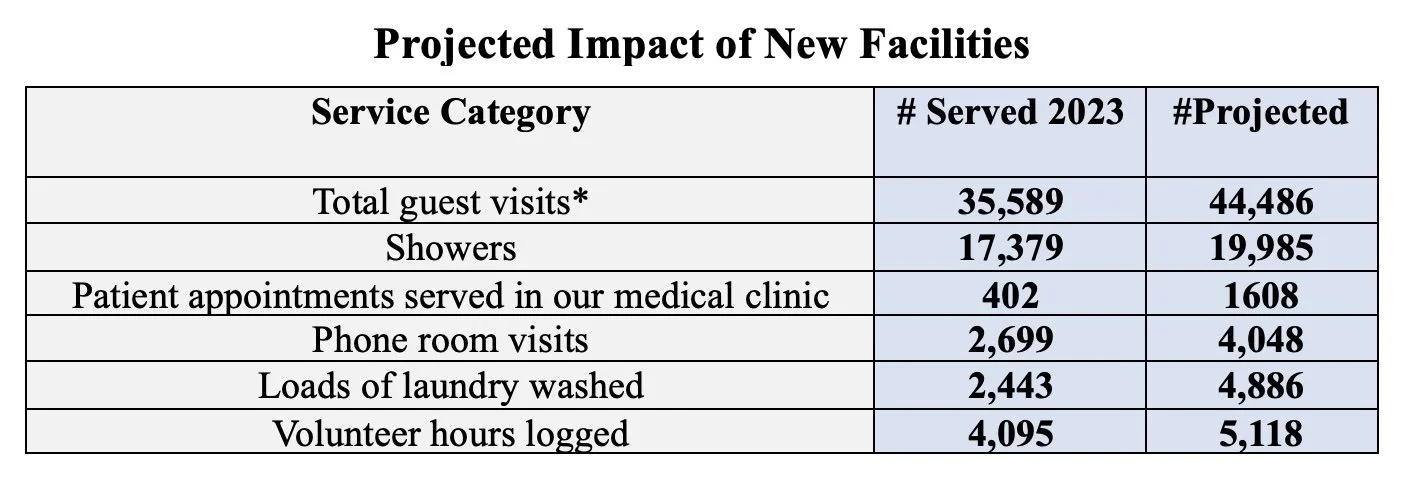Last year, HTC recorded over 30,000 visits
Imagine how much more we could do with fully functional facilities and space for our staff and professionals to help guests.
Renovation: Why Now?
Our Center, constructed of modular trailers and wooden decking were never designed to be permanent, and heavy usage, weathering, and the wear-and-tear of nearly 18 years of foot traffic are threatening the structural integrity of our facilities. Showers and toilets are failing, creating unsafe and unsanitary conditions, which we are forced to mitigate at ever increasing costs. Our admin trailer is too small to accommodate our housing navigators, health care providers, and housing partner agency, Depaul USA New Orleans.
Simultaneously, demand for our services continues to rise. In fact, we’ve seen a steady rise in the number of individuals seeking our services year-over-year. While the City of New Orleans has planned initiatives to significantly reduce homelessness, the Rebuild Center and HTC specifically, is an important cog in the wheel of connecting unhoused individuals with case managers who help them navigate the housing process. UNITY of Greater New Orleans endorses HTC as one of their Continuum of Care providers and has recognized HTC case worker efforts by awarding them Housing Navigator of the Year. HTC’s continued success is critical to the City’s plan to reduce homelessness.
Given the constrains on our services, the HTC Board of Directors undertook a capital campaign in Fall 2022. So far, we have secured over $3,500,000 towards our goal of $3.7M.
Impact of New Facilities
Currently, construction of a new permanent hygiene facility, including showers, toilets, sinks, and laundry began in June 2024. This hygiene facility will address many of the efficiency issues that we currently face with closures and failing infrastructure. We estimate that our hygiene services will increase by at least 15% with this renovation.
Upon completion of our new hygiene facilities, construction will begin on our new Counseling and Communication building (C&C). When this new building is completed, it will provide a substantial increase in services available to our guests.
The C&C will comprise of 4 case management offices allowing for guests to meet with a helping professional such as an ACT team worker, a case manager, a community partner such as Grace at the Greenlight, an advocate, notary, and others who offer their services.
The C&C building will comprise 3 medical exam rooms, which will enable medical professionals to be on-site daily rather than once/week. The dedicated medical space will allow for a 400% increase in the ability for an HTC guest to meet with a doctor, nurse, or psychiatrist. Additionally, the Center will be able to staff a mental health professional, enabling more guests to receive the necessary mental health assessment component of their housing applications, thus making this part of an already complicated process more efficient.
Further, the C&C building will have 5 small phone rooms, allowing guests to make important contacts with service providers, case workers, family, and others. Currently, the Center only has 2 phone lines for guests averaging ~2700 calls annually. The addition of 3 more phone lines will increase access by 150%.
The footprint of the new building will also allow enough coworking space to hire a volunteer coordinator who can continue to build HTC’s impressive network of volunteers who are critical to the daily function of the Center. This will allow for HTC to increase their engagement of volunteers by at least 25%, such as medical providers, psychiatrists, legal aids, occupational therapists, interpreters, graduate level students, interns, and others who help bring specialized services to our guests.
Construction of the C&C will allow the ability for our collaborative partner DePaul USA to staff an additional housing professional. DePaul USA provides intensive case management for approximately 50 clients . This includes not only locating apartment units and coordinating the logistics of rental payments, but offering supportive services designed to make their day to day lives successful while transitioning into housing. This involves navigating life challenges such as managing severe mental illness, helping with substance abuse, and serious physical health conditions. With the addition of another housing professional, 20 additional clients would be aided with intensive case management.
Altogether, the renovation and rebuilding of the Harry Tompson Center is necessary to keep up with rising demand and will significantly increase HTC’s capacity and broaden impact in nearly all domains of service.



